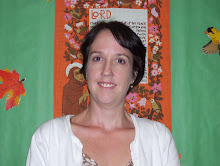Teachers’ Mathematical Learning Experiences
Teachers spend many hours studying how to teach mathematics in education classes, workshops, and observation of teaching techniques used in the classroom. This education experience needs to expand its focus to train teachers how to create ma thematic activities for students to work in group settings. Service workshops must refocused to teach teachers how to learn and apply mathematics rather than how to teach (NCTM, 2007).
Knowledge of Mathematical Content
Teachers need to create a positive environment of interaction in their classrooms to teach mathematics by helping students to learn math by experimenting, visualizing, theorizing and by building on concepts already learned. Teaching mathematics includes incorporating the use of current technology into the lesson plans. This can be done through the use of computer programs or the use of calculators. We need to help students make the connection between math and the application of math in other subject areas in order to succeed in establishing student interest and improved performance in math. In order to accomplish this task teachers need to be provided with the tools to help students succeed by continuing their own education and improving upon the strategies needed to help students (NCTM, 2007).
Knowledge of the Student as Learners of Mathematics
Learning is a process that continues throughout a person’s life. As teachers we need to teach in our classrooms in ways which engage our student’s natural curiosity to learn mathematics. We need to take into account each student’s ability to learn, their age, and their interest to learn mathematical concepts when creating lesson plans. The current practice of ability grouping has shown to have little effect on the improvement of math skills in students and therefore the need to use alternative strategies to teach students is necessary (NCTM, 2007). By looking at differentiated learning we can create mathematical lessons to motivate students with a variety of skill levels to learn mathematical concepts.
Knowledge of Mathematical Pedagogy
Teachers need to have a knowledge of basic math principles, their application to real-world problems and the capability to effectively express this information in their teaching. Today teaching requires the use of variety of resources for instructional purposes, such as the text books, online resources, computer programs, calculators, and material that is shared from other teachers. We need to teach math concepts in ways that promote student to communication visually and orally and enable student understanding and application of mathematical principles to real-world problem solutions (NTCM, 2007).
Reference List:
Herrera, T., Kanold, T. D., Koss, R. K., Ryan, P., & Speer, W. R. (2007). Mathematics Teaching Today: Improving Practice, Improving Student Learning. Reston: The National Council of Teachers of Mathematics, Inc.
Subscribe to:
Post Comments (Atom)

No comments:
Post a Comment